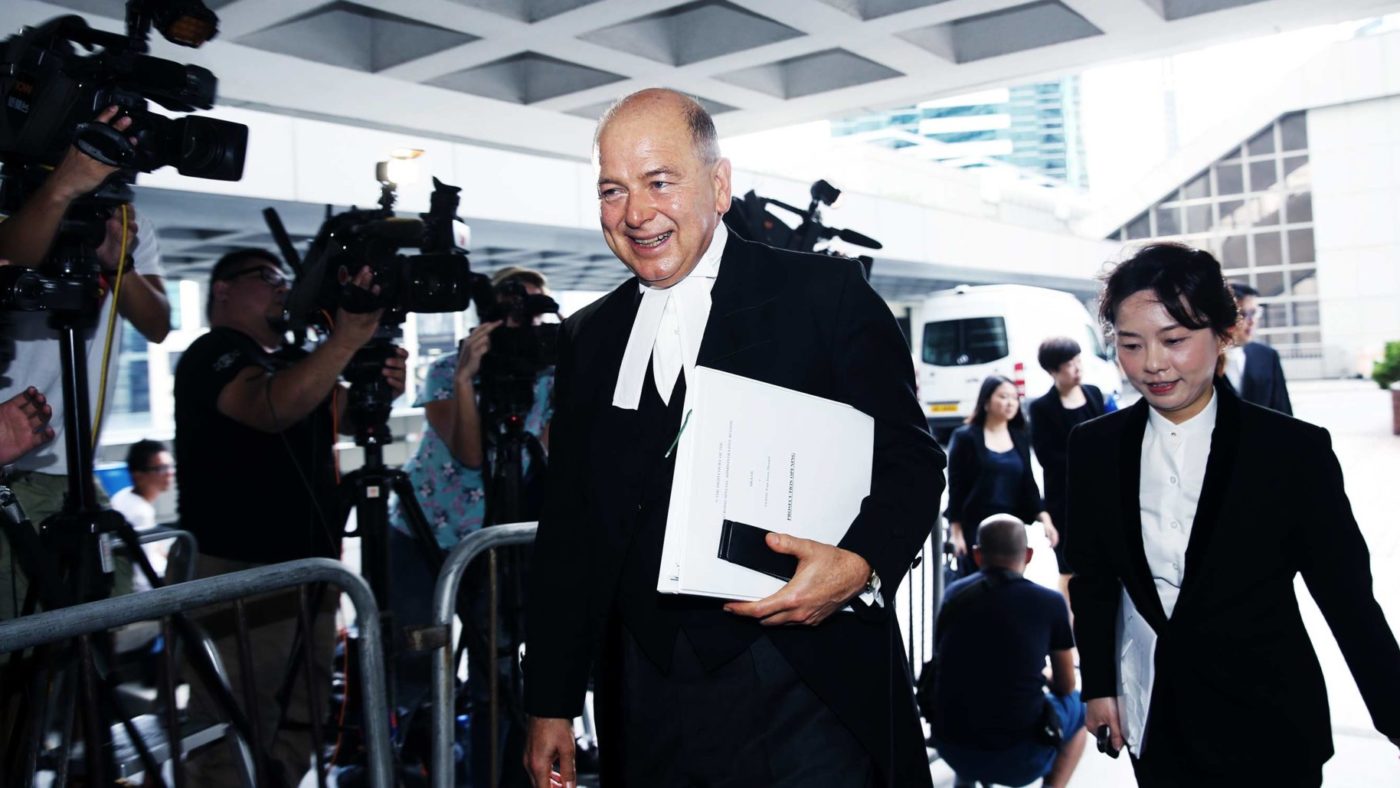Access to legal representation is a fundamental human right and we should be grateful that here in the UK, everyone is able to access a lawyer no matter the crime and whether you’re the accused or the accuser.
A fundamental part of this concept in the UK is the ‘cab rank rule’ whereby barristers take the first set of instructions that are handed by their clerks, regardless of who the client might be. This concept is, in many ways, admirable in that it ensures that nobody should be denied access to legal counsel. But is it outdated or even justifiable when being used in legal disputes that go against the fundamental rule of law and other British values?
The ‘cab rank rule’ has been used by some to justify British judges and lawyers operating in Hong Kong. After all, everyone should have access to a lawyer. But is the Hong Kong government and legal system so bereft of lawyers that they must go fishing in the pool of British QCs to find someone willing to prosecute pro-democracy protestors for their supposed crimes?
Yet that’s what’s happening with the appointment by a Hong Kong court of David Perry, a British QC, to represent the prosecution in the trial of Jimmy Lai and other high-profile pro-democracy protestors for unlawful assembly. Mr Perry will be representing the interests of Beijing in ensuring that those who exercised their right to protest in support of democracy and freedom are prosecuted and sent to prison, possibly for life.
In Hong Kong, pro-democracy protestors have been brutally beaten whilst teachers and journalists have been targeted and oppressed for supporting fundamental human rights. This has only got worse with the passage of last year’s draconian National Security Law. The NSL is not only a vehicle for extremely harsh sentences but is also absurdly wide-ranging in that it can be used against anyone critical of Beijing or the Hong Kong authorities. Those targeted can find themselves extradited to China for trial and its 99% conviction rate.
Surely, there is a limit to how far the ‘cab rank rule’ is taken. The Hong Kong government and legal system isn’t a downtrodden, vulnerable, impoverished individual at risk of being overwhelmed by an oppressive bureaucracy. It is the oppressive bureaucracy and Mr Parry will be standing in court doing its bidding by putting protestors who stood up for their rights in prison.
There is a fundamental question as to where legal legitimacy lies. Does it lie with diktats imposed on Hong Kong by the Chinese Communist Party, or does it lie with the legally-binding and internationally recognised Sino-British Joint Declaration that guarantees Hong Kong’s autonomy and the rule of law?
Mr Perry made a choice in making his services available to the Hong Kong legal system. Now he must make another choice as to whether he stands with the oppressors or the oppressed. Those fighting for freedom or those fighting to destroy it. Those who value freedom or those who despise it.
Some would suggest that this decision should be taken out of his hands. That the UK government or the International Bar Association should step in to prevent this happening, especially as Foreign Secretary Dominic Raab and Justice Secretary Robert Buckland have both raised concerns about the risk of British judges facing “inappropriate pressure” while sitting on Hong Kong’s courts. Mr Raab went further yesterday, telling Sky News: “There is no doubt in my mind that under the Bar code of ethics a case like this could be resisted and frankly, I think people watching this would regard it as pretty mercenary to be taking up that kind of case.”
But frankly, this shouldn’t require political intervention. An experienced British QC such as Mr Perry should be able to see for himself that he risks adding a veneer of respectability to a Hong Kong legal system that is now the antitheses of the rule of law and the values that should go to the very heart of any self-respecting British lawyer.
Click here to subscribe to our daily briefing – the best pieces from CapX and across the web.
CapX depends on the generosity of its readers. If you value what we do, please consider making a donation.


